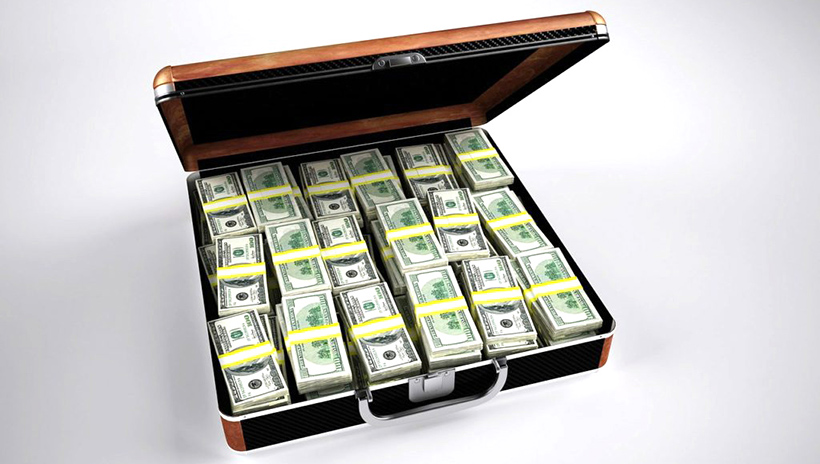Publisher's note: This post appears here courtesy of the Carolina Journal, and written by John Hood, Chairman of John Locke Foundation.
After Durham businessman
Greg Lindberg, state Republican Party Chairman
Robin Hayes, and two of Lindberg's business associates were indicted in an
alleged bribery scheme, advocates of government-funded campaigns scurried to
restate their argument. But the latest incident doesn't make it any more persuasive.
Lindberg is accused of offering Republican Insurance Commissioner Mike Causey money in exchange for favorable regulatory treatment of Lindberg's sprawling insurance businesses. According to reporting by the
Wall Street Journal and other media outlets, Lindberg has been acquiring insurance companies and then using their funds to invest in other Lindberg ventures or to acquire assets such as mansions and yachts for his personal use.
Causey is a hero in the story, not a conspirator. When Lindberg and his associates came calling, shortly after Causey's election in 2016, the insurance commissioner went to law enforcement with his suspicions. He ultimately helped run the sting operation that nabbed Lindberg.
The money Lindberg allegedly offered to pay for Causey's favor would not have consisted of personal cash under the table. Rather, he would have given $2 million in contributions to aid Causey's expected 2020 run for re-election, going beyond just "hard money" (individual gifts to Causey's campaign) to include large-dollar gifts to other entities to expend on Causey's behalf.
Money can flow into politics in a variety of ways beyond direct gifts to campaigns. Donors can give money to political parties, to party committees, to political action committees (PACs) that in turn give to candidates, to so-called super PACS that don't make contributions but instead conduct independent expenditures on behalf of candidates, and to nonprofit forms such as 501(c)(4) social-welfare organizations, 501(c)(5) labor organizations, or 501(c)(6) trade associations that can engage in some kinds of political speech but can't treat politics as their primary activity.
This kind of giving is subject to varying restrictions and disclosure requirements, depending on the organizational form and the state where it operates.
Advocates of government-funded elections argue that large-dollar gifts by wealthy individuals or powerful interest groups are inherently corrupting. They want to dramatically reduce or eliminate "soft money" in all its forms, and to lower the cap on hard-money gifts to candidates.
In a free society, however, there is no way to stamp out large-scale expenditures used to express opinions about candidates, parties, legislation, or political causes. Unless we repeal the First Amendment - and similar protections of the freedom of speech, press, petition, and assembly in state constitutions - individuals will always retain the right to express their own views, to give money to others to express those views on their behalf, and to form voluntary associations that have as one of their roles the collective expression of such views.
Political contributions aren't used to pay people for votes, at least not legally. Political expenditures fund the transmission of messages via publication, broadcast, direct correspondence, or face-to-face communication. As long as government makes critical decisions with big consequences for our personal and professional lives - in other words, forever - we will try to populate the government with like-minded officials and to sway the decisions of those officials.
If individuals or the associations they form can give money directly to candidates and parties, in sums large enough to communicate effectively with voters, they'll do it. As government obstructs that flow, the money will divert into independent-expenditure groups that are less transparent - and removed, by law, from the control of the candidates who are their intended beneficiaries.
Both effects harm the political process. Voters ought to know as much as possible about those who seek to wield the coercive power of government. And candidates ought to be able to control their own political messages, and to be held accountable for what those messages contain.
We can combat political corruption without further expanding the coercive power of government. It shouldn't fund political speech. And it shouldn't forbid the private funding of political speech. What it should do is investigate and punish bribery schemes like the one alleged in the Lindberg case.
John Hood (@JohnHoodNC) is chairman of the John Locke Foundation and appears on "NC SPIN," broadcast statewide Fridays at 7:30 p.m. and Sundays at 12:30 p.m. on UNC-TV.


























